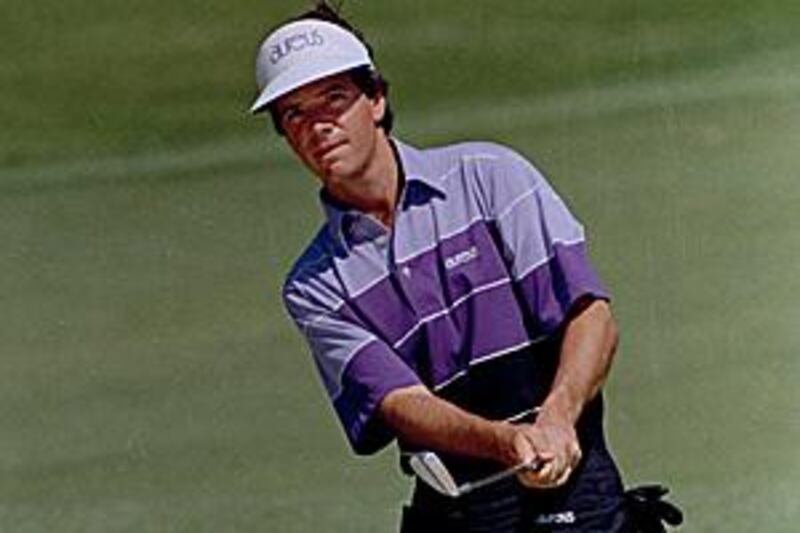Even in seemingly perishable times, days in which it becomes bogged down in a quagmire of a course, the ancient game of golf, a sport with more undulations in its history than the greens of Augusta National, finds time to uphold one of its merrier traditions. In clasping the US Open trophy after five watery days on the New York State course of Bethpage Black on Monday, Lucas Glover pandered to the game's swaggering ability to spawn one-offs, men who were not meant for better things suddenly being overburdened by meaningful medallions and memories. Approaching the 109th staging of the tournament, Glover, a largely anonymous figure in international climes, was never portrayed as the white knight of Bethpage Black.
Glover's game did not go hand in glove with a major trophy, but he is the latest on an endless list of men who were joyously sucked in the moment, and ran with it. It would be harsh to depict him as a non-entity. Glover may be catapulted into the reckoning for further riches after such penetrating times, but history suggests otherwise. There is a slew of figures whose ability to post winning scores coincided with the Masters, the US Open, the British Open or the USPGA.
Ken Venturi likes to regale people with the story of his solitary major, and how he survived 36 holes on the final day while fighting heat exhaustion. In lifting the US Open in 1964, he was also hit by a form of lightning, as was Orville Moody, whose success five years later was his only tournament win. Larry Mize and Bob Tway are defined by two shots. Tway holed a bunker shot on the final hole of the 1986 USPGA, Mize chipped in from impossible range in a play-off for the 1987 US Masters. Greg Norman finished second in both. It never got any better for Mize or Tway.
Who remembers Steve Jones and Mark Brooks? Jones managed to get it round in less strokes than anyone else in the 1996 US Open, Brooks was the USPGA champion of the same year. Paul Lawrie was the 1999 British Open, Ben Curtis the 2003 British Open winner. Todd Hamilton was the man with a shortish drive who was the British Open champion of 2004. To illustrate his ability over that particular week, he downed Ernie Els in a play-off.
Shaun Micheel won the 2003 USPGA, and Michael Campbell managed to discourage Tiger Woods at the 2005 US Open. Zach Johnson and Trevor Immelman were surprise Masters winners over the past three years. Consistency seems to be everything, but it buys the fancied few nothing in majors. Glover is a journeyman professional, a player who was comforted by place money. His solitary win came at the Walt Disney World resort in 2005, his second the US Open.
Such animated capers will define him for the rest of his days. Ricky Barnes threatened to usurp Glover in his rookie year on tour, but a final-round 76 saw him withdraw to share second place with the more recognisable figures of Phil Mickelson and a rejuvenated David Duval, fresh from being posted at just under 900 in the world. Duval's 2001 British Open win came about while he was jousting with Woods at the summit of the sport, Glover came from nowhere.
Glover and golf will be forever mired in folklore. dkane@thenational.ae





